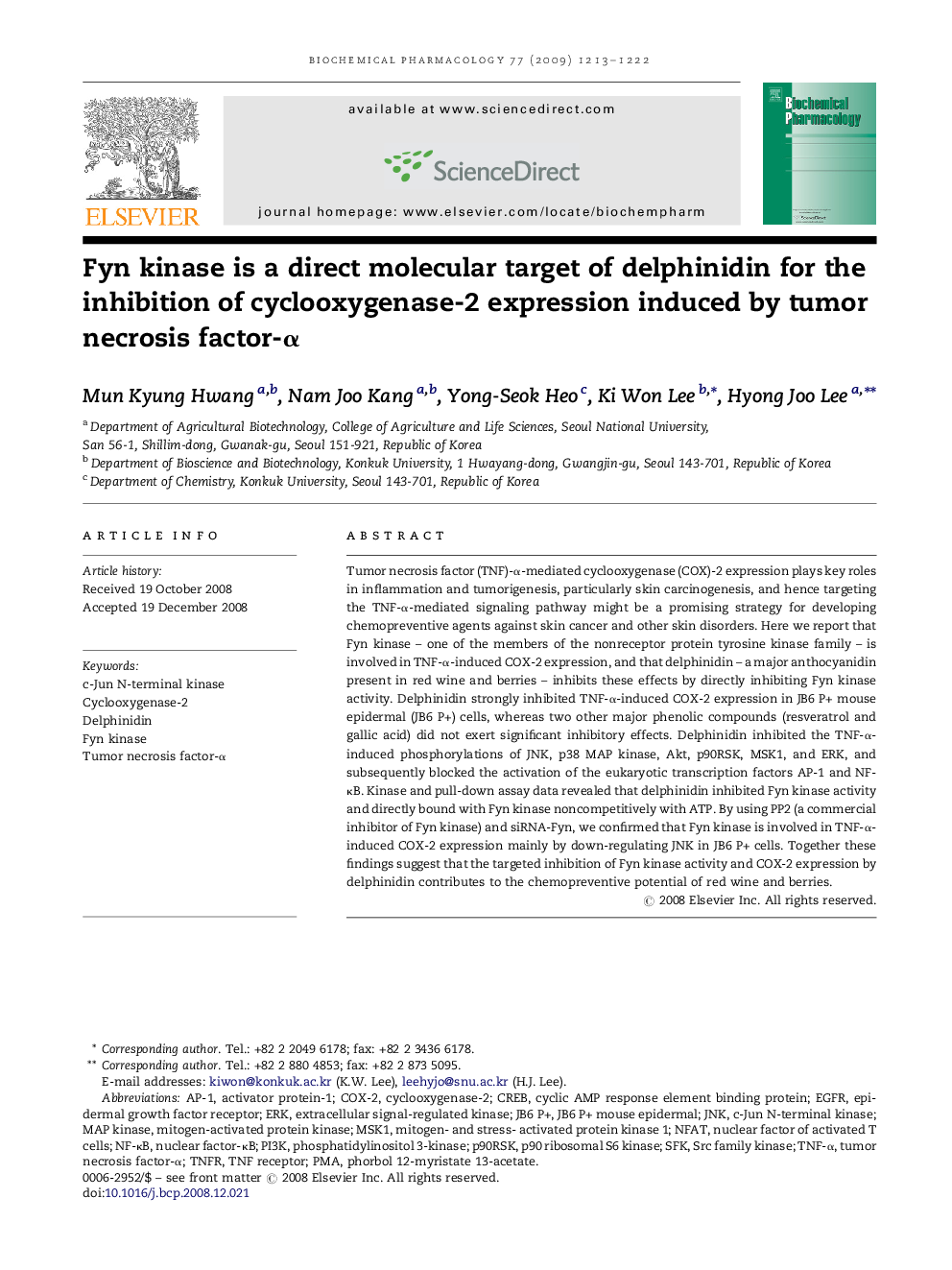| Article ID | Journal | Published Year | Pages | File Type |
|---|---|---|---|---|
| 2514798 | Biochemical Pharmacology | 2009 | 10 Pages |
Tumor necrosis factor (TNF)-α-mediated cyclooxygenase (COX)-2 expression plays key roles in inflammation and tumorigenesis, particularly skin carcinogenesis, and hence targeting the TNF-α-mediated signaling pathway might be a promising strategy for developing chemopreventive agents against skin cancer and other skin disorders. Here we report that Fyn kinase – one of the members of the nonreceptor protein tyrosine kinase family – is involved in TNF-α-induced COX-2 expression, and that delphinidin – a major anthocyanidin present in red wine and berries – inhibits these effects by directly inhibiting Fyn kinase activity. Delphinidin strongly inhibited TNF-α-induced COX-2 expression in JB6 P+ mouse epidermal (JB6 P+) cells, whereas two other major phenolic compounds (resveratrol and gallic acid) did not exert significant inhibitory effects. Delphinidin inhibited the TNF-α-induced phosphorylations of JNK, p38 MAP kinase, Akt, p90RSK, MSK1, and ERK, and subsequently blocked the activation of the eukaryotic transcription factors AP-1 and NF-κB. Kinase and pull-down assay data revealed that delphinidin inhibited Fyn kinase activity and directly bound with Fyn kinase noncompetitively with ATP. By using PP2 (a commercial inhibitor of Fyn kinase) and siRNA-Fyn, we confirmed that Fyn kinase is involved in TNF-α-induced COX-2 expression mainly by down-regulating JNK in JB6 P+ cells. Together these findings suggest that the targeted inhibition of Fyn kinase activity and COX-2 expression by delphinidin contributes to the chemopreventive potential of red wine and berries.
